Making the Case for Regenerative Agriculture
Our best chance to combat climate change and secure our planet’s future.
Making the Case for Regenerative Agriculture
Our best chance to combat climate change and secure our planet’s future.
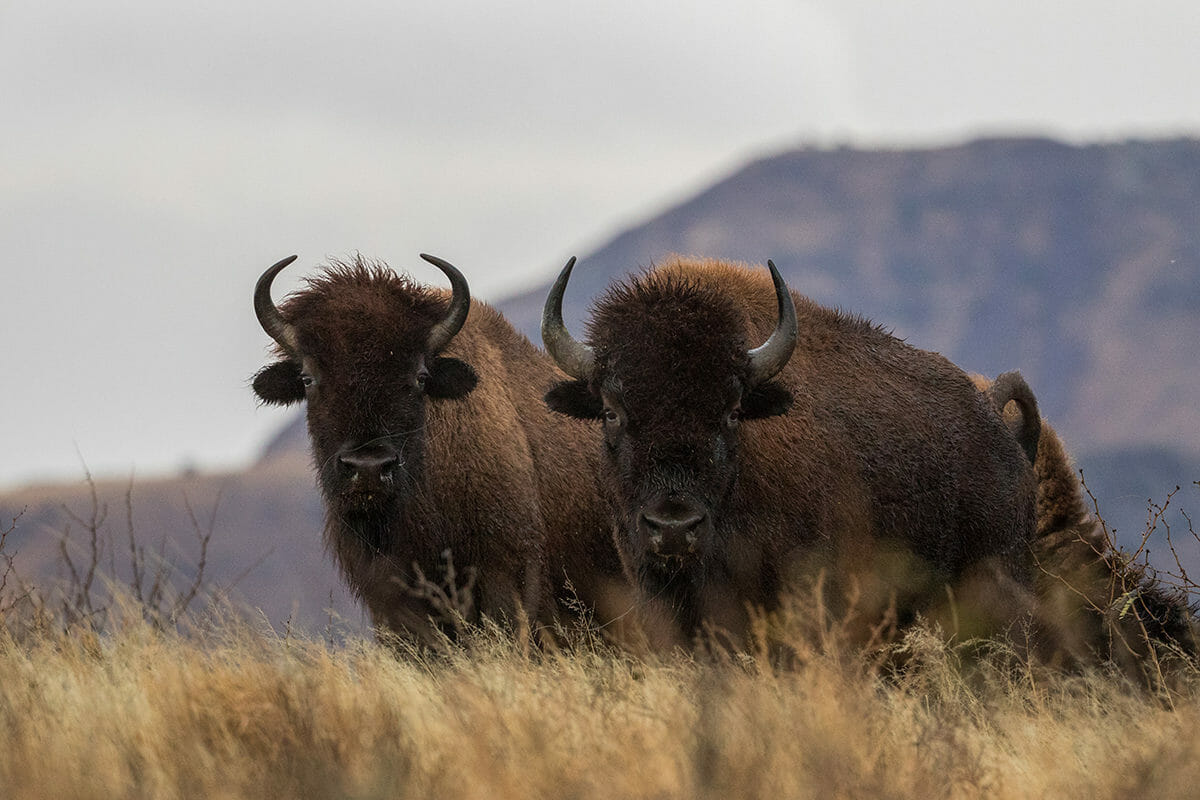
This article is by Katie Forrest, co-founder/owner of Epic.
For thousands of years, monstrous herds of animals roamed the earth. These beasts covered vast swaths of land in search of food, water, and safety from predators. Their presence was integral, both as a food source for hunters and as ecological regulators. This was especially true for ruminant like goats, cattle, buffalo, sheep, and deer, whose stomachs have the ability to ferment plants through special microbial actions. The result: a highly potent manure that’s incredibly valuable as a fertilizer. When paired with the natural soil aeration provided by their hoofs, these animals could stimulate the biological elements of healthy grass and soil in ways no man-made tool ever has.
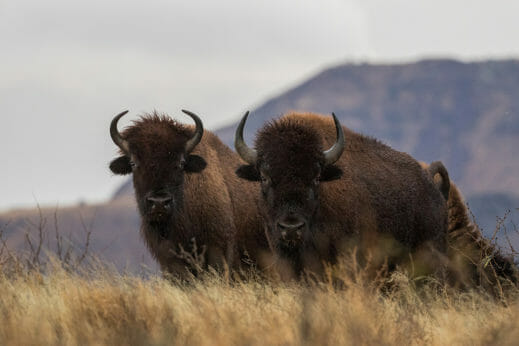
These factors created a symbiotic, cyclical relationship between the planet and its inhabitants. The grass fed the animals, the animals fertilized the soils, and the grass grew back taller and stronger while the animals were away. Unfortunately, as humanity proliferated, it slowly chiseled away at the size and frequency of these herds. We hindered their roaming capabilities by putting up fences or killing off their predators, limiting their ability to impact lands like they once could. Simultaneously, we began employing harsher farming methods and poor livestock management that stripped soils of vital nutrients and left them little time to recover between harvests. Suddenly, our natural land stewards were no longer able to do their job. The system was shattered.
This sequence began years ago, but we’re feeling its strongest tremors today. As grasslands and soils have withered away without animal impact to heal them, they’ve become increasingly infertile and unable to absorb carbon from the atmosphere – a tragic development with the threat of climate change on the rise. It’s become clear we have to find a way to decelerate its effects. That’s where regenerative agriculture comes in. By simulating the natural movement of animal herds through planned rotational grazing patterns and unleashing the power of ruminants to promote naturally thriving ecosystems, regenerative agriculture can heal previously damaged lands. Even more importantly, it can reverse previous destruction to our atmosphere. That’s because healthy grasses from holistically managed lands remove carbon dioxide from our air and put it back where it belongs: the soil.
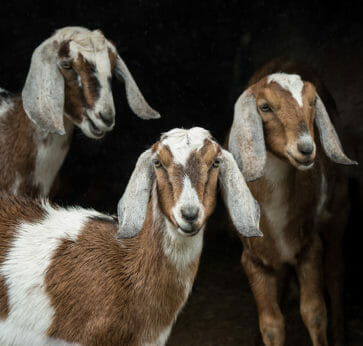
This isn’t just an idea – it’s a proven strategy. Over the past four decades, Allan Savory and The Savory Institute have lead the charge for changing our global food production model and embracing a holistic approach to agriculture. Through taking soil samples, monitoring carbon content, and executing countless grassland reclamation projects, they’ve proven regenerative agriculture works. They’ve shown it can bring degenerated land back from the dead, it can use carbon from the atmosphere as fuel for vegetation, and it can make up for the damage we’ve caused to our world(1). Now is the time to unleash it.
There’s no time to waste. With our animals and the planet disconnected, our grasslands – which cover between 20-40% of the earth’s land surface – have deteriorated. Desertification has slowly swept across the globe, incrementally destroying the precious few areas of productive land we have left for food production. Even worse, our soils’ ability to absorb carbon for plant growth has vastly decreased, leaving us helpless against the dangerously high levels of greenhouse gases that modern life and agricultural practices have created. With rising tides and global temperatures, we’re (literally) in hot water.
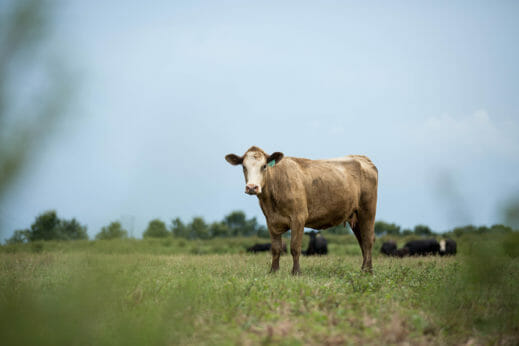
That’s why we can’t sit still anymore. Instead, we have to embrace regenerative agriculture, return our ruminants to the pastures, and allow them to do what they do best: heal our lands. It’s the best thing for our animals, our planet, and our future.
We know this is a big ask, but we’ve had one of the key ingredients to defeating climate change under our feet this whole time. Don’t you think it’s about time we use it?
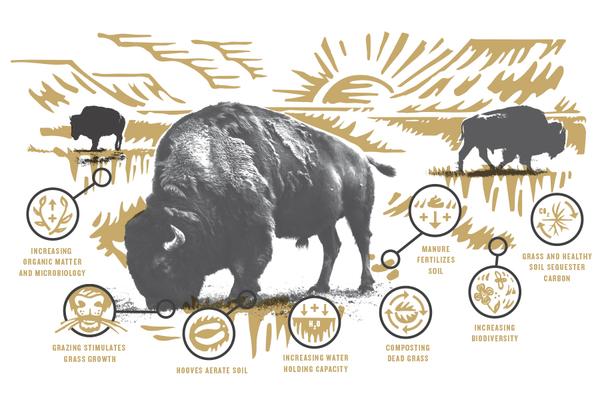
(1) Teague, W.R., et al. “The role of ruminants in reducing agriculture’s carbon footprint in North America.” Journal of Soil and Water Conservation, vol. 71, no. 2, Mar. 2016, pp. 156”“163., www.jswconline.org/content/71/2/156.refs.
Follow us
This work is licensed under a Creative Commons Attribution-NoDerivatives 4.0 International License.
Want to republish a Modern Farmer story?
We are happy for Modern Farmer stories to be shared, and encourage you to republish our articles for your audience. When doing so, we ask that you follow these guidelines:
Please credit us and our writers
For the author byline, please use “Author Name, Modern Farmer.” At the top of our stories, if on the web, please include this text and link: “This story was originally published by Modern Farmer.”
Please make sure to include a link back to either our home page or the article URL.
At the bottom of the story, please include the following text:
“Modern Farmer is a nonprofit initiative dedicated to raising awareness and catalyzing action at the intersection of food, agriculture, and society. Read more at <link>Modern Farmer</link>.”
Use our widget
We’d like to be able to track our stories, so we ask that if you republish our content, you do so using our widget (located on the left hand side of the article). The HTML code has a built-in tracker that tells us the data and domain where the story was published, as well as view counts.
Check the image requirements
It’s your responsibility to confirm you're licensed to republish images in our articles. Some images, such as those from commercial providers, don't allow their images to be republished without permission or payment. Copyright terms are generally listed in the image caption and attribution. You are welcome to omit our images or substitute with your own. Charts and interactive graphics follow the same rules.
Don’t change too much. Or, ask us first.
Articles must be republished in their entirety. It’s okay to change references to time (“today” to “yesterday”) or location (“Iowa City, IA” to “here”). But please keep everything else the same.
If you feel strongly that a more material edit needs to be made, get in touch with us at [email protected]. We’re happy to discuss it with the original author, but we must have prior approval for changes before publication.
Special cases
Extracts. You may run the first few lines or paragraphs of the article and then say: “Read the full article at Modern Farmer” with a link back to the original article.
Quotes. You may quote authors provided you include a link back to the article URL.
Translations. These require writer approval. To inquire about translation of a Modern Farmer article, contact us at [email protected]
Signed consent / copyright release forms. These are not required, provided you are following these guidelines.
Print. Articles can be republished in print under these same rules, with the exception that you do not need to include the links.
Tag us
When sharing the story on social media, please tag us using the following: - Twitter (@ModFarm) - Facebook (@ModernFarmerMedia) - Instagram (@modfarm)
Use our content respectfully
Modern Farmer is a nonprofit and as such we share our content for free and in good faith in order to reach new audiences. Respectfully,
No selling ads against our stories. It’s okay to put our stories on pages with ads.
Don’t republish our material wholesale, or automatically; you need to select stories to be republished individually.
You have no rights to sell, license, syndicate, or otherwise represent yourself as the authorized owner of our material to any third parties. This means that you cannot actively publish or submit our work for syndication to third party platforms or apps like Apple News or Google News. We understand that publishers cannot fully control when certain third parties automatically summarize or crawl content from publishers’ own sites.
Keep in touch
We want to hear from you if you love Modern Farmer content, have a collaboration idea, or anything else to share. As a nonprofit outlet, we work in service of our community and are always open to comments, feedback, and ideas. Contact us at [email protected].by General Mills, Modern Farmer
April 19, 2018
Modern Farmer Weekly
Solutions Hub
Innovations, ideas and inspiration. Actionable solutions for a resilient food system.
ExploreExplore other topics
Share With Us
We want to hear from Modern Farmer readers who have thoughtful commentary, actionable solutions, or helpful ideas to share.
SubmitNecessary cookies are absolutely essential for the website to function properly. This category only includes cookies that ensures basic functionalities and security features of the website. These cookies do not store any personal information.
Any cookies that may not be particularly necessary for the website to function and are used specifically to collect user personal data via analytics, ads, other embedded contents are termed as non-necessary cookies.